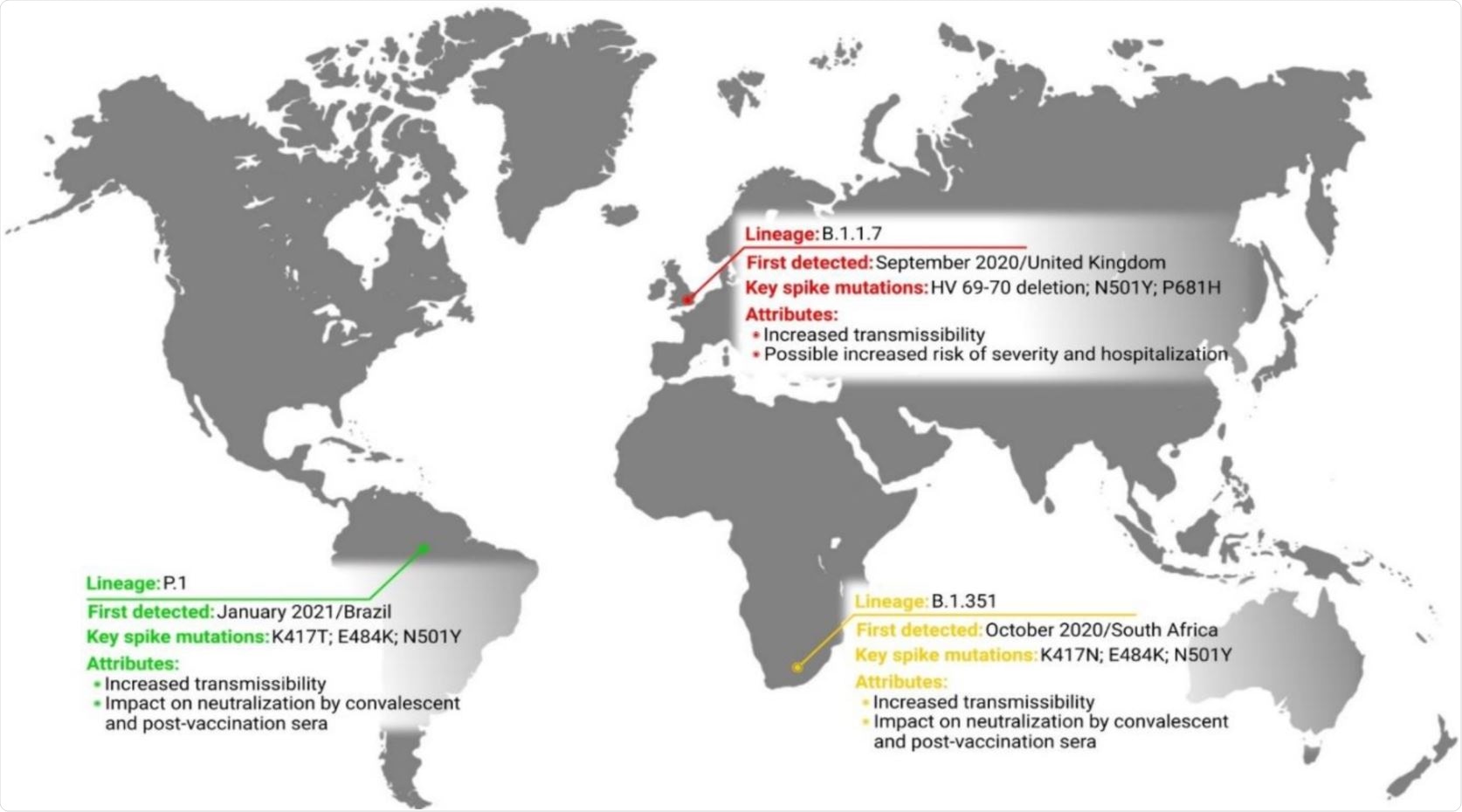Ever since its emergence in late December 2019 in Wuhan, China, the severe acute respiratory syndrome coronavirus 2 (SARS-CoV-2) has spread around the globe causing the coronavirus disease 2019 (COVID-19) pandemic that has caused unprecedented global healthcare and economic crises.
SARS-CoV-2 is constantly mutating, and new variants are emerging rapidly, though only a few of the variants are capable of posing a threat to public health since they are more infectious and more severe.
The variants have been classified by the Centers for Disease Control and Prevention (CDC) together with the SARS-CoV-2 Interagency Group (SIG) based on a strictly defined pattern.
They are classified as variants of interest, variants of concern, and variants of high consequence. Three variants of concern - B.1.1.7, B.1.351, and P.1 - and 4 variants of interest - B.1.526, B.1.525, B.1.427/B.1.429, and P.2 – have been identified over the last few months.
Researchers from Poland recently analyzed key information concerning SARS-CoV-2 variants, such as their infectivity, mutations, severity, and immune susceptibility. Their work is published in the open-access journal Pathogens.

Current localization of SARS-CoV-2 variants of concern and their brief characteristics.
SARS-CoV-2 variants of interest, concern, and high consequence
SARS-CoV-2 variants of interest are variants with phenotypic changes in antigenicity, virulence, and epidemiology, and those that can have a negative impact on current diagnostics protocols, therapeutics, vaccines, or public health measures compared to the original reference virus. Variants of interest have mutations that stimulate amino acid changes linked to possible phenotypic implications. Moreover, these can be causative agents of community transmission or COVID-19 clusters.
Variants of concern are viral variants with increased transmissibility, the ability to cause more severe disease with more hospitalizations or death, considerable reduction in antibodies’ neutralization, and decreased vaccine or treatment efficacy.
Based on specific characteristics of the variant of concern identified, various public health measures such as new diagnostic tools and modification of vaccines or treatment strategies may be needed to control the viral transmission or to assess the effectiveness of testing, vaccines, and treatment options against the variant.
Currently, there are four SARS-CoV-2 variants of concern that have emerged in different locations at different times with different mutations and characteristics. They are the variants recently identified in the UK (Alpha), South Africa (Beta), India (Delta), and Brazil (Gamma) with increased transmissibility, immune escape capabilities, increased virulence, and hospitalization requirements.
Variants of high consequence have a mutation that has the capability to significantly decrease the efficacy of prevention strategies or medical countermeasures such as vaccines, drugs, and monoclonal antibodies compared to previously circulating variants. They also lead to more severe disease and considerably increase the number of hospitalizations required. No SARS-CoV-2 variants currently identified meet these criteria.
Interestingly, a recently discovered Israel P681H variant, previously identified in Hawaii and Nigeria, has not been associated with higher transmissibility. This is possibly explained by the fact that the Israeli vaccination campaign was fast and effective. About 60% of Israelis have received at least one dose, and Israel has the highest vaccinated population in the world per capita. This could have positively influenced and reduced the infectivity rate.
Vaccine equity and development of an effective COVID-19 drug are the ultimate weapons in the war against SARS-CoV-2
A better understanding of all SARS-CoV-2 variants is crucial to predict their emergence and spreading, evaluate their impact on vaccine efficacy, and develop a specific treatment and management plan.
Vaccination is an important tool in the battle against the COVID-19 pandemic and should not be delayed due to concerns of new SARS-CoV-2 mutations. Rapidly vaccinating the maximum number of people possible using currently authorized vaccines is the most direct way of fighting these emerging variants.
“It is recommended that the vaccination strategy should continue, even in cases where vaccines may be slightly less effective against certain variants of the virus.”
As more people get vaccinated, the circulation of the virus will decrease, leading to the emergence of fewer mutations. Hence, ensuring equal access to vaccines and focusing on the repositioning or discovery of an effective drug against SARS-CoV-2 is the need of the hour. Until these become possible, currently available vaccines are the only valuable tool in fighting SARS-CoV-2 and its variants.
“In the near future, it is expected that newly elaborated vaccines will also directly target the existing and emergent variants of SARS-CoV-2.”